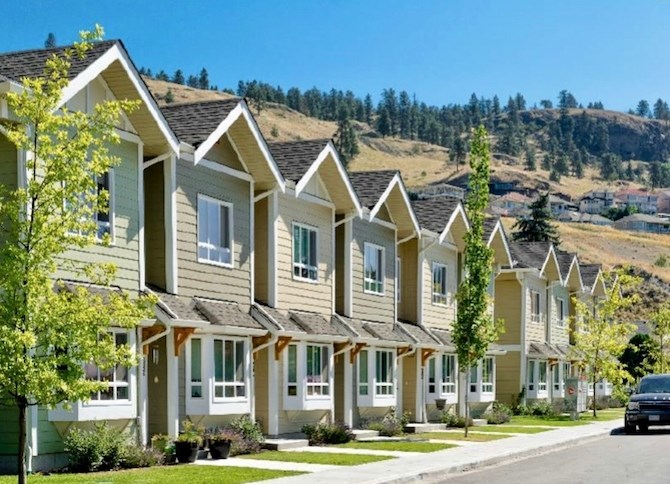Governments have poor record intervening in hot real estate markets: Interior Realtor

Since single-family home prices have jumped by $100,000 in Canada since last August, some are calling for governments to step in and try to cool things down.
One of those voices is an RBC Economics report posted March 24, which suggests everything from making it easier to build new housing to making it harder to borrow money.
“My initial comment is that the government has tried about 10 different initiatives in the last several years to try to slow the market down – everything from the vacancy tax to the speculation tax to higher stress tests,” Wendy Runge, president of the Kamloops and District Real Estate Association, told iNFOnews.ca. “None of those seem to have done what they were intended to do. I think it would be a pretty hard sell to the public.”
One RBC suggestion is that the government doesn’t make it any easier for first-time home buyers to get into the market in order to keep the demand down.
It also suggests that, if people are stretching their finances too far, tougher “stress” tests be put in place to make it harder for them to borrow the big dollars needed to buy a home these days.
Runge sees a lot of people, some of whom have been saving for years, trying to get into the market before it’s too late, which creates a different kind of problem and one that government is not well placed to solve.
“The concern seems to be, mostly, the speed of the market and are people purchasing feeling the pressure that they have to make these decisions too quickly and they’re not having the proper subjects to protect their interests?” Runge said. “I think that’s the realtor’s job to do.
“There’s a lot of pressure out there, for sure, when you’re involved in many multiple offers and your buyers have lost out several times. Are there things we can do as a profession to make sure our people are well qualified so they know what they’re getting into? For sure, that’s our job. Whether it’s the government’s job to mandate certain things to cool off the market, until I know what they’re talking about, I’m hesitant to jump on that bandwagon.”
The demand for housing in Canada was running ahead of supply before COVID-19 hit last year, the RBC report says. The pandemic just accelerated that and the trend has been compounded by very low interest rates.
In an earlier report, RBC said the average single-family home price in Canada jumped $100,000 from August 2020 to February 2021. In Vancouver that gain was $139,000 and it was $145,000 in the Fraser Valley, the report says.
During that time period, the average price for a single family in Kamloops jumped almost $59,000 to $604,000, based on the real estate board’s figures.
The Association of Interior Realtors that covers the Okanagan uses a benchmark price for a typical single family home. That surged by $83,500 in the Central Okanagan to $776,300 in February.
The benchmark price is generally lower than the average price because it doesn’t include things like multi-million dollar properties.
RBC points to a number of problems with soaring real estate values.
Among them is the fact that it makes it harder to buy the land needed to build affordable housing. It’s also taking money out of the economy that is not, therefore, “going to more productive purposes in our economy.”
It calls on government to discourage speculative buying but the only speculation Runge is seeing in her market are people buying homes that they don’t expect to move into for another two or three years.
Kim Heizmann, president of the Association of Interior Realtors, was not available to comment.
While many of the policy changes suggested in the RBC report need to come from senior governments, it also calls on local governments to make it easier for developers to build more homes and suggests they “allow more medium-density, family-friendly housing in large urban areas (the so-called ‘missing middle’).”
It also suggests local governments should actively encourage and support construction of more rental housing.
To contact a reporter for this story, email Rob Munro or call 250-808-0143 or email the editor. You can also submit photos, videos or news tips to the newsroom and be entered to win a monthly prize draw.
We welcome your comments and opinions on our stories but play nice. We won't censor or delete comments unless they contain off-topic statements or links, unnecessary vulgarity, false facts, spam or obviously fake profiles. If you have any concerns about what you see in comments, email the editor in the link above.



